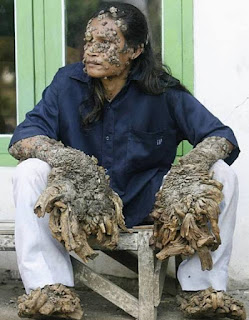Peacock by go-bananas on deviantart.com
The literary imagination of the nineteenth-century was fascinated by the symbol of the peacock. Indeed, even the young D. H. Lawrence, writing at the beginning of the twentieth century, can't resist having one of these ornamental birds come screeching its way into his first novel ...
The narrator, Cyril Beardsall, is sat one evening in an abandoned churchyard, chatting with his new acquaintance, Annable, the misanthropic (and misogynistic) local gamekeeper.
Although Annable is despised by the villagers and regarded as something of a devil, Cyril can't help confessing the erotic attraction he feels towards him; "his magnificent physique, his great vigour and vitality, and his swarthy, gloomy face drew me in". Cyril also likes the way that the older man treats him "as an affectionate father treats a delicate son", touching him on his shoulder or knee, as they sit discussing "the decline of the human race" into folly and corruption.
Suddenly, a peacock came flapping out from behind the church and flew onto the marble figure of an angel that continued to guard a grave, even if it had long ceased caring for the poor parishioner buried therein:
"The bird bent its voluptuous neck and peered about. Then it lifted up its head and yelled. The sound tore the dark sanctuary of twilight. ... Again the bird lifted its crested head and gave a cry, at the same time turning awkwardly on its ugly legs, so that it showed us the full wealth of its tail glimmering like a stream of coloured stars over the sunken face of the angel."
At first, Annable was silent and simply watched the peacock moving uneasily in the twilight. But then he exploded with unexpected and somewhat absurd misogynistic rage - especially considering the exuberant maleness that the large bird displayed:
"'The proud fool! - look at it! Perched on an angel, too, as if it were a pedestal for vanity. That's the soul of a woman ... the very, very soul. Damn the thing, to perch on that old angel. I should like to wring its neck.'"
The peacock gave another loud cry; it seemed to Cyril to be stretching its beak at them in derision. Annable picked up a piece of earth and flung it at the bird, saying: "'Get out, you screeching devil!'" The peacock flew away, over the tombs and down the terraces.
"'Just look!'" said Annable, "'the miserable brute has dirtied that angel. A woman to the end, I tell you, all vanity and screech and defilement.'"
Now, it transpires that this contemptuous view of women is the result of a bad marriage experience; according to Annable, his wife manipulated him from the beginning and quickly turned him into an objectified plaything. Then she got bored and fell in love with a poet. Feeling he'd been shit upon and humiliated, he left and allowed the world to think him dead.
That doesn't sound very nice. But, ultimately, his ugly and resentful remarks on women - like those of Lawrence's other famous gamekeeper, Oliver Mellors, - are unpleasant, unfair, and unforgivable, whatever the unfortunate circumstances that gave rise to them.
See: D. H. Lawrence, The White Peacock, ed. Andrew Robertson, (Cambridge University Press, 1983).









